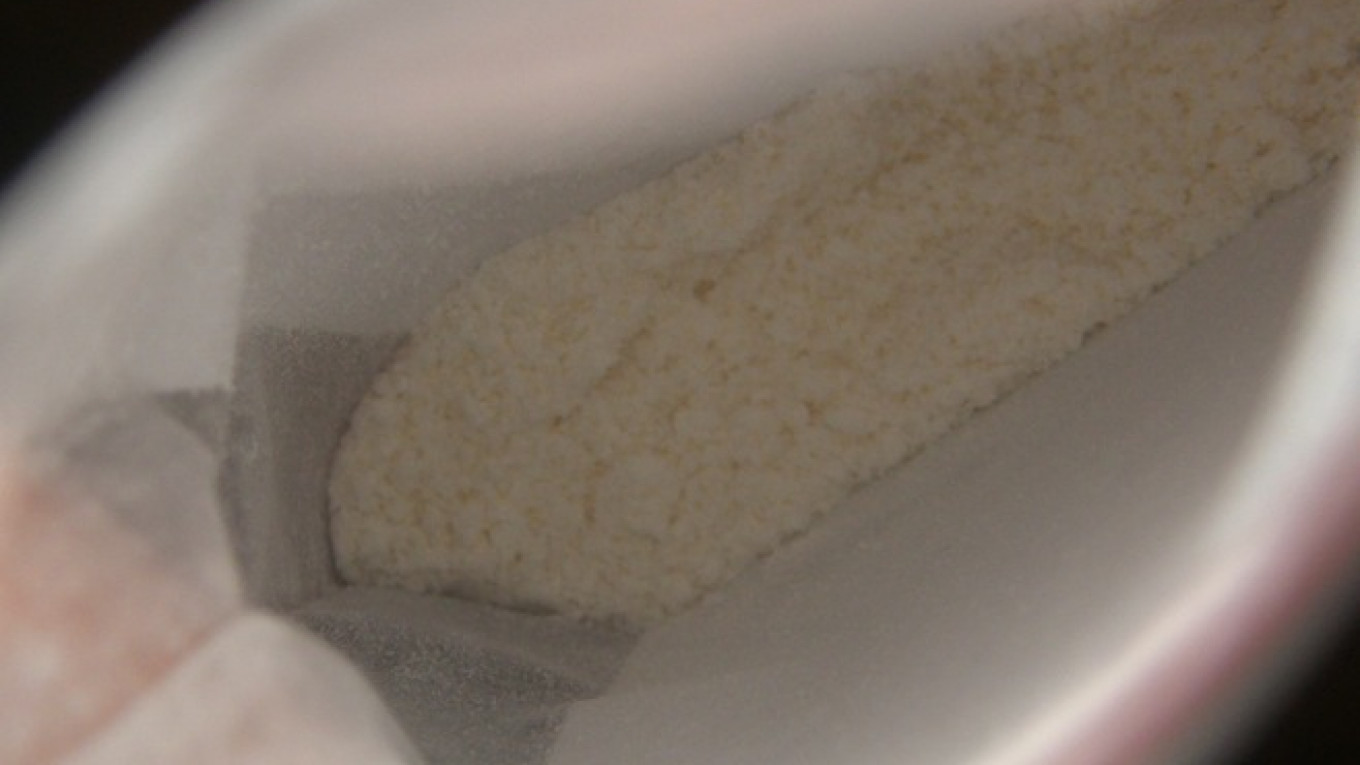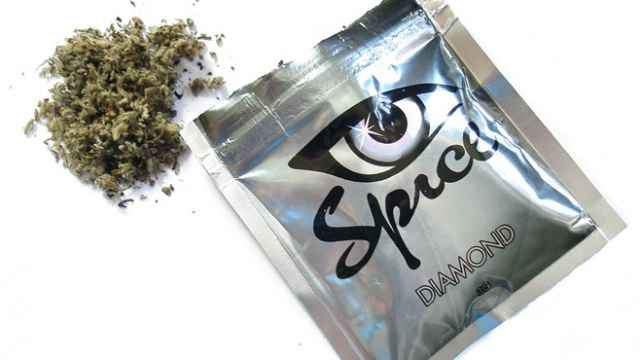Prime Minister Dmitry Medvedev has approved the addition of three new designer-drug ingredients to Russia's federal register of banned substances, as the Federal Drug Control Service struggles to battle the rising popularity and lethal effects of synthetic marijuana.
A note included with the resolution on the government's website on Tuesday said the new substances were included as part of the ongoing fight against synthetic drugs, a fight that has seen drug dealers consistently find new synthetic compounds to avoid using substances already included on the list.
The substances added to the list on Tuesday include methoxetamine, NM-018 and ethylphenidate. The move follows reports of dozens of deaths across the country in recent weeks from synthetic marijuana, more commonly known as "spice."
It was unclear whether the three substances banned on Tuesday were believed to be responsible for recent reports of mass poisonings and deaths across the country, but a statement on the Cabinet's website said the drugs were found to have been distributed in the Novosibirsk, Leningrad, Arkhangelsk, Sakhalin, Chelyabinsk, Smolensk, Kirov and Pskov regions, as well as the republic of Ingushetia.
The Federal Drug Control Service has repeatedly expressed alarm over the threat posed by synthetic drugs, as new compounds can be synthesized almost endlessly, meaning that each time the government bans one substance, the drug manufacturers can simply make another one.
Most synthetic marijuana compounds were banned in July 2013, but up until then they were easy to buy legally, with dozens of websites even offering delivery of the goods. Even after the ban was imposed, drug dealers were able to create new synthetic compounds faster than their ingredients could be declared illegal.
Several bloggers on Tuesday called attention to the apparent ubiquity and ease with which one can acquire designer drugs in Russia, noting that a link to a website purportedly selling spice was even spotted on the main page of Dagestan's Justice Ministry website.
The hyperlink could still be found on the official website at the time of publication, but an error message popped up upon trying to access the website.
Contact the author at [email protected]
A Message from The Moscow Times:
Dear readers,
We are facing unprecedented challenges. Russia's Prosecutor General's Office has designated The Moscow Times as an "undesirable" organization, criminalizing our work and putting our staff at risk of prosecution. This follows our earlier unjust labeling as a "foreign agent."
These actions are direct attempts to silence independent journalism in Russia. The authorities claim our work "discredits the decisions of the Russian leadership." We see things differently: we strive to provide accurate, unbiased reporting on Russia.
We, the journalists of The Moscow Times, refuse to be silenced. But to continue our work, we need your help.
Your support, no matter how small, makes a world of difference. If you can, please support us monthly starting from just $2. It's quick to set up, and every contribution makes a significant impact.
By supporting The Moscow Times, you're defending open, independent journalism in the face of repression. Thank you for standing with us.
Remind me later.






